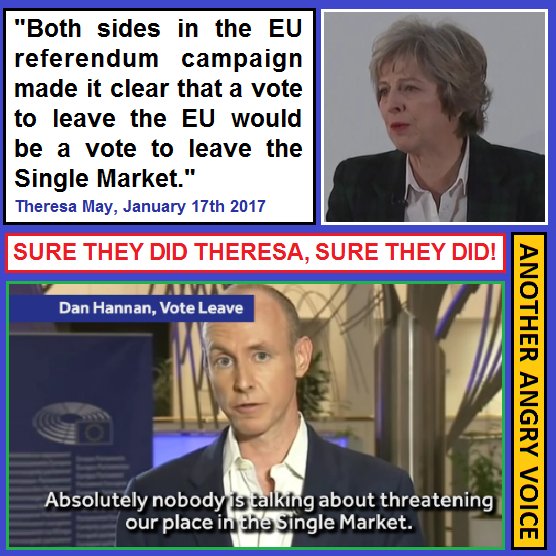International trade deals
April 2016: "It is tempting to look at developing countries' economies, with their high growth rates, and see them as an alternative to trade with Europe. But just look at the reality of our trading relationship with China - with its dumping policies, protective tariffs and industrial-scale industrial espionage. And look at the figures. We export more to Ireland than we do to China, almost twice as much to Belgium as we do to India, and nearly three times as much to Sweden as we do to Brazil. It is not realistic to think we could just replace European trade with these new markets."
"And while we could certainly negotiate our own trade agreements, there would be no guarantee that they would be on terms as good as those we enjoy now. There would also be a considerable opportunity cost given the need to replace the existing agreements - not least with the EU itself - that we would have torn up as a consequence of our departure."
January 2017: "We want to get out into the wider world, to trade and do business all around the globe. Countries including China, Brazil, and the Gulf States have already expressed their interest in striking trade deals with us."
Immigration:
April 2016 (responding to a question from the BBC): "What matters is that we have brought about changes in the free movement rules as a result of the negotiation."
January 2017: "As home secretary for six years, I know that you cannot control immigration overall when there is free movement to Britain from Europe."
Not reaching a deal
April 2016: "With no agreement, we know that WTO rules would oblige the EU to charge 10% tariffs on UK car exports, in line with the tariffs they impose on Japan and the United States. They would be required to do the same for all other goods upon which they impose tariffs. Not all of these tariffs are as high as 10%, but some are considerably higher."
January 2017: "And while I am confident that this scenario need never arise - while I am sure a positive agreement can be reached - I am equally clear that no deal for Britain is better than a bad deal for Britain.
"Because we would still be able to trade with Europe. We would be free to strike trade deals across the world. And we would have the freedom to set the competitive tax rates and embrace the policies that would attract the world's best companies and biggest investors to Britain."


